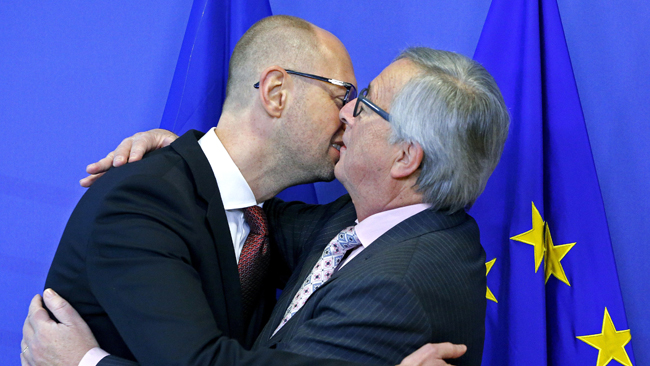Will we get to live like EU citizens now?
Starting on January 1, 2016, European businesspeople will be allowed to bring their products and services to Ukraine duty-free
Ukraine and the EU will continue negotiations on the implementation of the free trade area (FTA) agreement. Meanwhile, just in a week, on December 16, the EU will consider a number of issues related to Ukraine. “We have decided and agreed with the President of the European Commission and the President of the European Council that we will hold a mini-summit on December 16 with the participation of both presidents and key European commissioners, which will consider not only the question of visa-free regime, but also the implementation of a deep and comprehensive FTA from January 1, 2016,” Poroshenko stated recently.
Let us recall that it has been over a year since the EU unilaterally lifted customs restrictions for Ukrainian products until the FTA enters in force. And starting next year, European businesspeople, too, will be allowed to bring their products and services to Ukraine duty-free.
However, are domestic businesspeople ready to meet European guests? It seems that the answer is “no.” Indeed, according to estimates of the Institute for Economic Research and Policy Consulting, only a third of Ukrainian exporters have made use of autonomous preferences offered by the EU. Of course, most of these companies are small and medium enterprises (SMEs). “That is, when our producers try to enter new markets, I mean not a neighboring region but a nearby country, it is primarily legal and linguistic barriers that stop them. For a large company, hiring a translator is a non-issue. Meanwhile, for small or medium-sized producers, it is a problem. It is trade and commerce chambers that can help our businesspeople with accessing these markets by providing documentation, legal advice, preparing them for international exhibitions. This was not done in time,” business coach and consultant on improving the company efficiency Viktoria Oleshko added.
However, language, legal nuances, occupation of Crimea, and the war in eastern Ukraine are not the only problems that hinder domestic SMEs as they try to master European markets, Oleshko said. An important obstacle is the banal unwillingness of Ukrainian producers to play by the European rules. “If we launch the FTA with the EU on January 1, we should, under this agreement, bring our regulatory framework in line with EU norms. This includes standardization, metrology, technical standards – there is a lot of work ahead. Currently, there is no activity in this field,” the business consultant stated.
In her opinion, modern management practices offer great tools that work well and are scientifically justified. With their help, businesspeople can optimize the production processes and the resulting products and services. “If the quality is a set of parameters, one needs to set and manage them,” Oleshko said.
While at it, people should adhere to continuous improvement processes, or the so-called Deming wheel principle. “Having collected information, developed a plan, launched a project, we then check whether our ideas work, watch the feedback, adjust and close the project. In fact, it all is simple and based on common sense,” Oleshko explained.
Most manufacturers associate quality management with the ISO international standards. “These standards are universal. They apply no matter which industry the enterprise belongs to, whether it is big or small,” the business consultant added.
Basic principles of ISO are customer focus, leadership, involvement of people, process approach, continual improvement, factual approach to decision making, and mutually beneficial supplier relationships.
The lean production methodology will be of use to businesspeople as well. “If the ISO is working to improve quality through standardization, lean production does the same through the elimination of waste,” the business consultant said. This principle always asks the businessperson the question: what is the consumer willing to pay for? All other costs, like accounting services, management services, logistics, are of no interest to customers and do not add to the value of the product. This principle makes it possible to remove unnecessary stages of production, and simplify and reduce costs of those that should be retained.
Another methodology is Six Sigma, which was developed by Motorola Inc. It is a strategic approach to improving business. Its essence is search for and elimination of causes of errors or defects in business processes by focusing on the output parameters that are critical to the consumer. It is necessary to produce the product without deviation from the set parameters.
“Everything is based on common sense, all the ideas overlap. They all point in one direction and never compete with each other. We cannot say that we have to choose between Sigma, lean production or the ISO standards. They work very well together and give a good synergistic effect,” Oleshko explained. According to her, the ISO standards, in fact, make up the base, but on the other hand, they are the natural outcome. If the company implements lean production, it will start the process of standardization over time. “So, why not do it to the requirements of ISO certificate, and receive one at the same time? It is not necessary, but it is an added benefit,” Oleshko said.
Newspaper output №:
№74, (2015)Section
Day After Day





